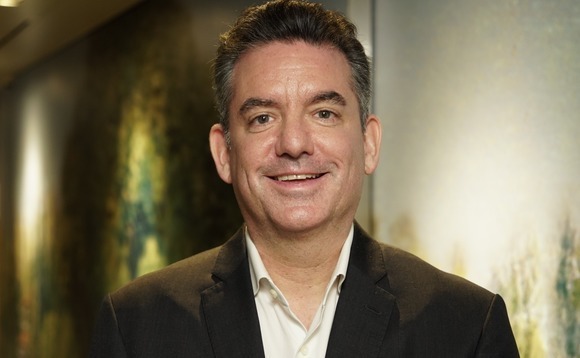
Fund focus: LGT eyes a buying opportunity

As LGT Capital Partners starts deploying its USD 1.65bn Asia fund-of-funds, it hopes that rationalising valuations and some consolidation of GP relationships will contribute to a strong vintage
"If you've been investing in Asian private equity historically, why would you sit out the next three years when they have the potential to be great years for private equity? From a vintage perspective, it does make sense to re-up unless you've got issues around the denominator effect or something similar," said Doug Coulter, a partner at LGT Capital Partners.
This was the kernel of LGT's pitch to investors considering allocations to its fifth Asia-focused fund-of-funds: look past how global macro headwinds might buffet the region or the regulatory uncertainty clouding sentiment on China and ensure you have exposure at a time when previously sky-high valuations are falling to earth.
It appears to have worked. LGT's fund-of-funds recently closed on USD 1.65bn after approximately 15 months in the market. Coulter noted that some existing LPs did indeed size up their commitments in anticipation of capitalising on a coming downturn.
Having set a target of USD 1bn – equal to what was raised in the previous vintage – the firm completed a first close in January 2021, primarily with internal capital. The process was all but done 12 months later; LGT delayed the final close until April, when bonuses are paid out, so that staff could maximise their contributions to the fund.
The LP base comprises over 50 global institutional investors, including pension funds, insurance companies, university endowments, and foundations. More capital was raised out of North America than in previous vintages – part of a concerted multi-year effort by LGT to diversify an historically Europe-centric investor cohort. Endowments were also better represented.
"For some private equity investors, this is their first Asian exposure. For others, it's part of a broader relationship where we also invest into other alternative asset classes or help them model out their cash flows," said Coulter.
The progression from first to final close over the course of 2021 remained steady even as regulatory interventions in China cut big tech down to size, rendered after-school tuition un-investable, and complicated offshore IPOs. LGT argued that its diversification across markets, funds, and companies was a source of strength – less than one-tenth of 1% of Fund IV was in China education technology.
Coulter acknowledges an element of fortune in the timing of the final close. Most external commitments were locked in by the end of 2021, before rising inflation, interest rate hikes, the Russia-Ukraine conflict, lockdowns in mainland China, and a sell-off in the technology sector began to make LPs reconsider their private equity allocations globally.
"I think the impact of China's zero-COVID strategy in terms of Asian fundraising is difficult to assess at the moment. There is still a lot of uncertainty, and you don't know for how long it will continue and to what extent it will impact operational performance," said Coulter.
"We don't know the answer to that yet, and you cannot compare it to the regulatory overhang from last year as that was in some respects more targeted."
Fund V will target opportunities in Asia's small to middle-market. There is unlikely to be any change in LGT's strategic allocation to the region: 50% China, 15% India, with the rest spread across more mature geographies such as Japan, Australia, and South Korea. A reasonable balance between buyout, growth, and venture will also be maintained.
Secondaries and co-investment are expected to account for 50% of the corpus, but LGT is holding back in the near term, conscious that many privately held assets have yet to reprice. It is hoped there will be greater visibility in the second half of the year.
"There is currently no reason for us to enter the market. We would only do so for assets that we know extremely well, or if we are working with a manager who has generated a strong DPI [distributions to paid-in] over the last 10 years," said Coulter.
"Pricing is important, but asset quality and manager quality often matter even more and in terms of pricing there may be better entry points for PE investors down the road."
Primary fund commitments are not subject to the same dynamics because portfolio GPs are deploying capital over several years. However, LGT is consolidating its exposure at the margins, which means larger cheques for managers that can demonstrate distributions rather than just mark-ups. The firm wants to be picky and it has more data points to work from than 10 years ago.
"We look for managers that have delivered a good DPI over the last five years. If that is not the case, it becomes very difficult to convince private equity investors to back a new fund," said Coulter.
"The last five years have been the best-ever for Asian private equity in terms of distributions. If a manager has not been selling during this time period, what makes us think the next five years are going to be better?"
Latest News
Asian GPs slow implementation of ESG policies - survey
Asia-based private equity firms are assigning more dedicated resources to environment, social, and governance (ESG) programmes, but policy changes have slowed in the past 12 months, in part due to concerns raised internally and by LPs, according to a...
Singapore fintech start-up LXA gets $10m seed round
New Enterprise Associates (NEA) has led a USD 10m seed round for Singapore’s LXA, a financial technology start-up launched by a former Asia senior executive at The Blackstone Group.
India's InCred announces $60m round, claims unicorn status
Indian non-bank lender InCred Financial Services said it has received INR 5bn (USD 60m) at a valuation of at least USD 1bn from unnamed investors including “a global private equity fund.”
Insight leads $50m round for Australia's Roller
Insight Partners has led a USD 50m round for Australia’s Roller, a venue management software provider specializing in family fun parks.




